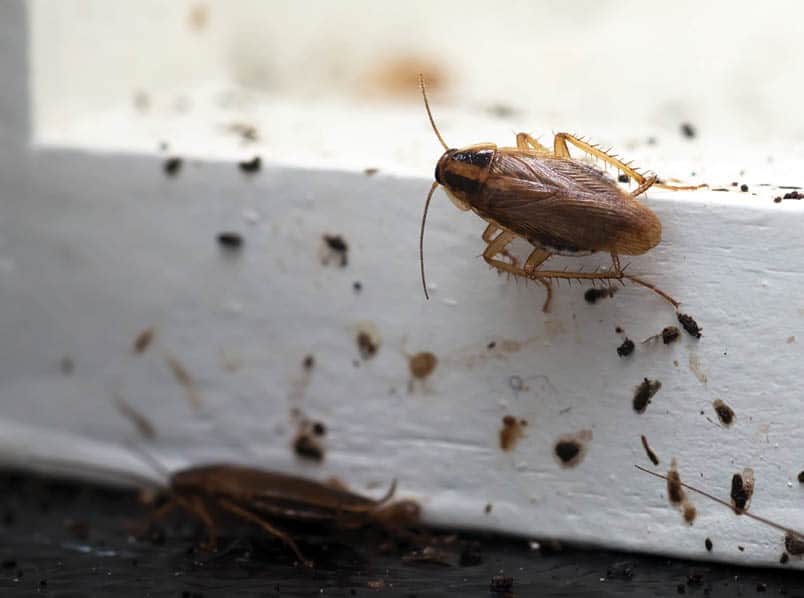
Irina K. | Adobe Stock
Whether talking about the cockroach’s ability to contaminate food, rapidly reproduce, spread disease, disturb customers, or cause inspection/audit citation, this small pest is of definite concern to food facility managers and executives. It is interesting to note, however, that potential cockroach problems appear to be of less concern in 2020 than they were in 2019 (Figure 7, page 5), but the majority of respondents (who could select more than one concern) still expressed unease about the presence of cockroaches in food plants. And that concern is warranted:
- Contamination. Cockroaches will walk across and eat garbage as well as finished foods — and can carry and expel bacteria as they defecate and salivate on food, food-contact services, and packaging.
- Reproduction. In ideal conditions, a single gravid female cockroach and her offspring can produce thousands of cockroaches in one year — and significantly more year over year thereafter.
- Citation. A single cockroach sighted in a food area by a regulatory inspector or third-party auditor can result in a failure, particularly with the Food Safety Modernization Act (FSMA) requiring that pest control be included as a preventive control, and be documented in the written Food Safety Plan. (See Figure 8 for changes respondents made due to FSMA requirements.)
- Customer. A consumer or a downstream customer finding a cockroach in your product can significantly damage your brand reputation — especially in today’s world of social media where an incident and photo can be shared with thousands instantly.
- Disease. In addition to the foodborne-disease bacteria that cockroaches can transmit in their feces and saliva, they can carry these pathogens — Salmonella, Listeria, and Campylobacter — on their bodies contaminating surfaces by simply walking on them. ?



Explore the March April 2020 Issue
Check out more from this issue and find your next story to read.
Latest from Quality Assurance & Food Safety
- Scentian Bio Wins Top Prize at IFT FIRST Startup Pitch Competition
- Evigence Debuts FreshSense to Change How Food Industry Measures Freshness
- Acme Releases Automated Scraper Strainer
- Mitzi Baum to Step Down as CEO of Stop Foodborne Illness
- USDA ARS Scientists Develop Pectin That Gels with Low-Sugar Products
- GS1 US Celebrates 50-Year Barcode 'Scanniversary' and Heralds Next-Generation Barcode to Support Modern Commerce
- New Florida Extension Agent Will Teach Stakeholders About Food Safety
- Athletic Brewing Company Announces $50 Million Equity Financing Round Led by General Atlantic





